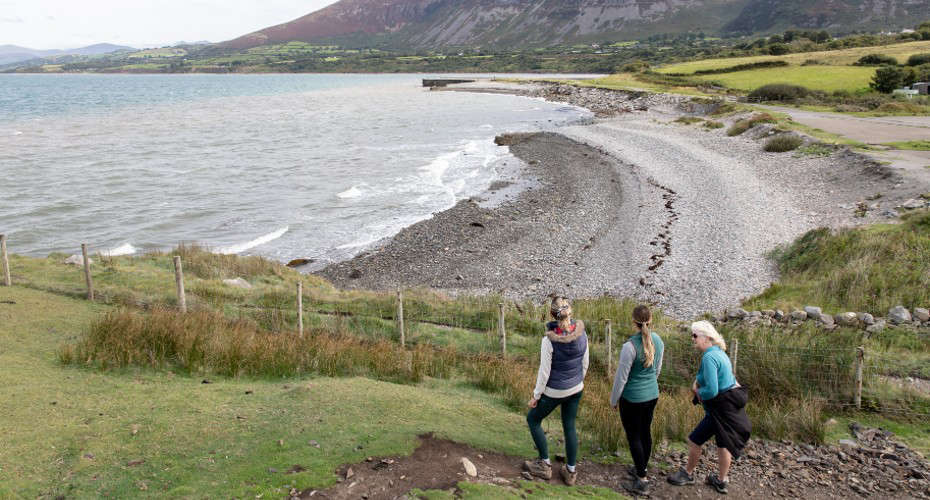
A new Centre focused on delivering research on climate change and its impacts on health that will address climate-environment-health inequalities across each life stage is being created by the University of Exeter.
Together with the UK Health Security Agency (UKHSA), the National Trust, Forest Research, the Met Office and other partner organisations, the £10m Centre for Net Positive Health and Climate Solutions is funded by UK Research and Innovation (UKRI). The centre will focus on finding net positive solutions to the well-established negative impacts of the climate crisis and associated environmental changes in human health.
From heatstroke, to the link between air pollution and coronary heart disease, to the increased likelihood of new pandemics, understanding and mitigating against these negative effects is of vital importance. It will also seek to ensure that any new measures don’t exacerbate existing inequalities among communities most impacted by climate change.
From its hub in Cornwall, with staff working across the UK, the Centre will contribute to scientific advances, policy advice and innovation to reduce the negative health impacts of climate change while maximising the benefits of research.
Professor Tim Taylor from the University of Exeter, who leads the Centre for Net Positive Health and Climate Solutions , said: “Climate change is having major impacts on our health – whether that’s directly through heat related illnesses or infectious diseases, or indirectly through our food systems. Ecosystems play a critical role in mediating these impacts. Through better design of our urban environments, our green and blue spaces, or through food systems, we can reduce greenhouse gas emissions and better respond to emerging health threats.
“The Net Positive Centre for Health and Climate Solutions will gather evidence on emerging risks and opportunities, work with communities to create responses and inform policies to improve the health and wellbeing of communities across the UK and beyond.”
Professor Lisa Roberts, Vice Chancellor of the University of Exeter added: “We are delighted that UKRI have chosen the University of Exeter to lead this vitally important Centre. It’s testament to the globally recognised expertise of our teams. The Centre will unite researchers from our well-established European Centre for Environment and Human Health with those across disciplines such as humanities, computer science, epidemiology and more. Importantly it will build on our partnerships with UKHSA, Forest Research, the National Trust and Met Office to ensure real world impact and solutions that make a difference to people’s lives.”
From a PhD investigating the links between thunderstorms and asthma, to analysis of mental health and climate linkages, the scope of work will be wide ranging, engaging with the public and policy makers at all levels and demonstrating why climate change is a public health issue.
Professor Isabel Oliver, Chief Scientific Advisor, UKHSA said: “As our Health Effects of Climate Change report shows, the evidence is clear – climate change is not solely a future health threat. Health impacts are already being felt domestically and globally, and these risks will accelerate over the coming years.
“That is why research of the kind that will be conducted through this new centre is so crucially important and why the UKHSA Centre for Climate and Health Security works with University of Exeter and other academic partners to make sure that we can best protect health in the context of our changing climate. There are significant opportunities for solutions that can help to combat climate change, manage its impact, and improve health. The decisions we make today will determine the severity and extent of climate impacts inherited by today’s youth and their children, and it’s vital that those decisions are based on the best possible evidence.”
Professor Rosie Hails, Director of Science and Nature at the National Trust said: “We are seeing the impacts of climate change across our landscapes with more frequent flooding events, storms uprooting trees, drought and high temperatures baking the land and disturbing and disrupting wildlife.
“The Trust is making interventions at scale in both urban places and the countryside; on our land, and in the wider landscape with partners, to help alleviate the impacts of climate change and deliver benefits for people and wildlife.
“Working with our partners in this programme will facilitate evidence-led approaches, and at the same time our interventions can contribute to that evidence base. For example, our work in urban places will explore how to improve built, green & blue infrastructure in ways that will deliver multiple benefits for people and reduce inequalities.”
Liz O’Brien, Principal Social Scientist at Forest Research, said: “Forest Research is a UK leader in social research examining the relationship between people and treescapes. This is an exciting interdisciplinary research project. Our contribution will be undertaken on behalf of the GB-wide Natural Environment Social Research Network, which also includes Natural England, Environment Agency, Natural Resources Wales and NatureScot. Through exploring solutions to the challenges of climate change for people’s health, the network aims to contribute a better evidence base that will inform policy and practice.”

 Objectors blast Exeter green fields housing plan
Objectors blast Exeter green fields housing plan
 RNLI help stricken speedboat
RNLI help stricken speedboat
 Police cash bid from housing development
Police cash bid from housing development
 Appeal for volunteers for Sidmouth Regatta and Air show
Appeal for volunteers for Sidmouth Regatta and Air show
 France rugby players to attend free family fun day
France rugby players to attend free family fun day
 Beware of scam house calls, residents warned
Beware of scam house calls, residents warned
 Concern for welfare of man in Exmouth
Concern for welfare of man in Exmouth
 Unexploded wartime bombs might still be lurking in city
Unexploded wartime bombs might still be lurking in city











